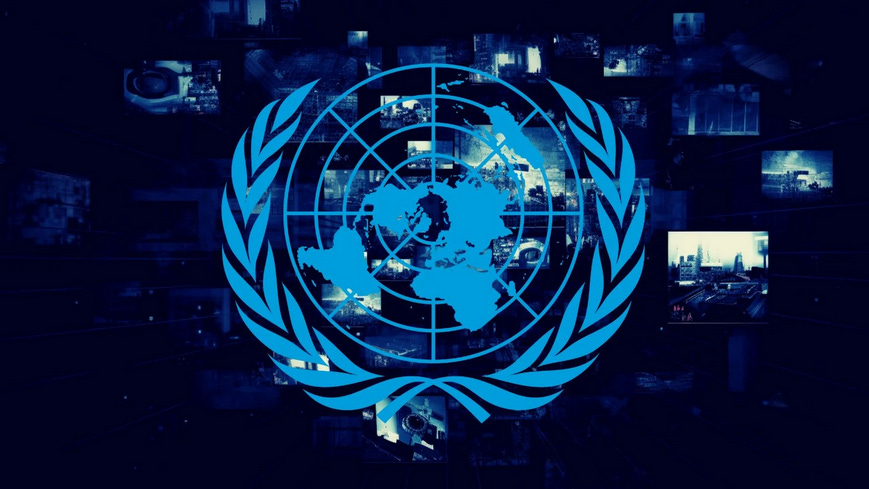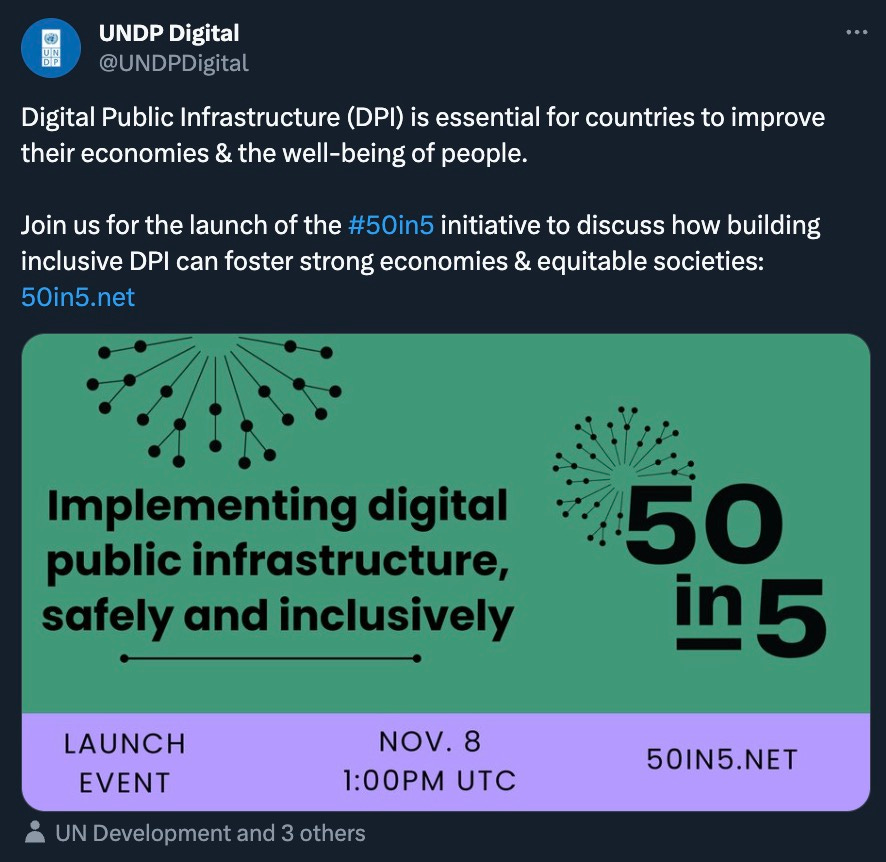The Great Reset: UN Program Pushes Digital Public Infrastructure as EU and Gates Foundation Push For Digital ID By 2030
The United Nations Development Program (UNDP) is launching a project based on what’s known as “digital public infrastructure,” aka, DPI.
One-time or recurring donations can be made through Ko-Fi:
By Didi Rankovic November 3, 2023
The United Nations Development Program (UNDP) is launching a project based on what’s known as “digital public infrastructure,” aka, DPI.
And the overarching justification/explanation of these activities is reaching the UN’s sustainable development goals (SDGs).
What UNDP is supposed to be doing is pretty clear from its name, but what DPI itself is, is a buzzword used in somewhat interesting/alarming concord by organizations such as the UN, but also the European Union (EU), the Gates Foundation, and of course, the World Economic Forum (WEF) is never quite out of any such picture.
What DPIs are supposed to do, in the best case scenario, is aid development in a number of ways. Those looking deeper into platitudes and “corporatespeak” coming from these organizations, however, are dismissing the term and the policy as a ruse to speed up introduction of digital IDs and payments, with a deadline of 2030.
November 8 is the date when the UNDP is implementing its “50in5” program, described as advancing “the conversation around the development of safe, inclusive and interoperable digital public infrastructure (DPI).”
Guess who’s there for the launch: The Bill and Melinda Gates Foundation. And why not – the group’s “Digital Public Goods Alliance and Co-Develop” has taken the center-stage of a lot of this effort.
If you’re a citizen of a UN member-state, and your government (i.e., taxpayers) are contributing to various UN efforts and, you feel either uneasy, or just insufficiently informed about all this (it could also be that any association with the Gates Foundation gives you proper Halloween-style goosebumps) – well, too bad. They’re going ahead anyway.
50 countries are designated as “guinea pigs” of sorts here, where the DPI in question will receive a concerned push from said entities.
These countries are what you might unfortunately easily assume they would be – those in Africa (sub-Saharan, particularly) and also, for some reason, still, India.
The Switzerland-based informal global elites’ mouthpiece WEF came out with a series of articles in September essentially pushing for DPI enforcement. The promise is “zero-knowledge tech” (in essence a cryptographic concept of verifying identity but also preserving privacy).
And of course, WEF is out there “thinking about the children” like the best of them.
“Children’s rights around the world can be boosted by investing in digital public infrastructures,” said one caption on the group’s website.
Source: reclaimthenet.org
Related articles:
BREAKING: G20 Announces Plan For Digital Currencies & Digital ID's
"Decline It!" - Dr. Mike Yeadon Issues Dire Warning Against Digital IDs And CBDCs
Digital Slavery: IMF Announces Single Global Digital Currency in Push To Eliminate Cash
Trudeau Is Implementing a Federal “Digital Identity Program”
New Digital ‘Money’ Will Mark the End of First Amendment, Second Amendment, and All Human Freedom
EXCLUSIVE Special Report: Medical Profession Implements WHO Digital Diagnosis Code for the Unvaxxed







Do not ever comply with these anti Sovereign maniacs.
UN? Has done what fir the peace and progress in the US?
Just last weekend, my city of half a million near Tokyo held a local craft beer fest. Cash was not accepted. Purely a cashless event. This will be implemented by varying degrees here and there long before 2030. Hell, it already is. Beside the cashless craft beer event, I have encountered QR Code Only restrooms and QR Code access controlled, by lottery outdoor events. You have to apply to the city office for a rationed ticket in the city park, those who are drawn receive the e-ticket that has the required QR Code that will display on your idiot phone that is then read at the gate to allow entry. Some process when departing the event. So your city knows exactly when you arrived and departed and so does anyone else who they allow access to the data. But nothing to worry about, I’m sure.